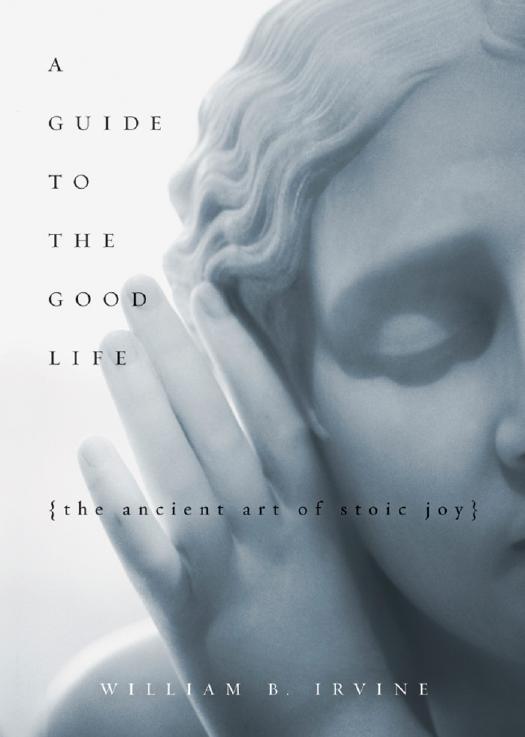A Guide to the Good Life: The Ancient Art of Stoic Joy by William B. Irvine

Author:William B. Irvine [Irvine, William B.]
Language: eng
Format: epub, pdf
Tags: Religion, Inspirational, Philosophy, General
ISBN: 9780195374612
Google: yQ59JV_9AfIC
Amazon: 0195374614
Publisher: Oxford University Press
Published: 2008-10-06T22:00:00+00:00
SENECA OFFERS lots of specific advice on how to prevent anger. We should, he says, fight our tendency to believe the worst about others and our tendency to jump to conclusions about their motivations. We need to keep in mind that just because things don’t turn out the way we want them to, it doesn’t follow that someone has done us an injustice. In particular, says Seneca, we need to remember that in some cases, the person at whom we are angry in fact helped us; in such cases, what angers us is that he didn’t help us even more.5
If we are overly sensitive, we will be quick to anger. More generally, says Seneca, if we coddle ourselves, if we allow ourselves to be corrupted by pleasure, nothing will seem bearable to us, and the reason things will seem unbearable is not because they are hard but because we are soft. Seneca therefore recommends that we take steps to ensure that we never get too comfortable. (This, of course, is only one of the reasons Stoics give for eschewing comfort; in chapter 7 we examined some others.) If we harden ourselves in this manner, we are much less likely to be disturbed, he says, by the shouting of a servant or the slamming of a door, and therefore much less likely to be angered by such things. We won’t be overly sensitive about what others say or do, and we will be less likely to find ourselves provoked by “vulgar trivialities,” such as being served lukewarm water to drink or seeing a couch in a mess.6
To avoid becoming angry, says Seneca, we should also keep in mind that the things that anger us generally don’t do us any real harm; they are instead mere annoyances. By allowing ourselves to get angry over little things, we take what might have been a barely noticeable disruption of our day and transform it into a tranquility-shattering state of agitation. Furthermore, as Seneca observes, “our anger invariably lasts longer than the damage done to us.”7 What fools we are, therefore, when we allow our tranquility to be disrupted by minor things.
The Stoics, as we have seen, recommend that we use humor to deflect insults: Cato cracked a joke when someone spit in his face, as did Socrates when someone boxed his ears. Seneca suggests that besides being an effective response to an insult, humor can be used to prevent ourselves from becoming angry: “Laughter,” he says, “and a lot of it, is the right response to the things which drive us to tears!”8 The idea is that by choosing to think of the bad things that happen to us as being funny rather than outrageous, an incident that might have angered us can instead become a source of amusement. Indeed, one imagines that Cato and Socrates, by using humor in response to an insult, not only deflected the insult but prevented themselves from getting angry at the person who had insulted them.
Marcus also offers advice on anger avoidance.
Download
A Guide to the Good Life: The Ancient Art of Stoic Joy by William B. Irvine.pdf
This site does not store any files on its server. We only index and link to content provided by other sites. Please contact the content providers to delete copyright contents if any and email us, we'll remove relevant links or contents immediately.
| Anthropology | Archaeology |
| Philosophy | Politics & Government |
| Social Sciences | Sociology |
| Women's Studies |
The remains of the day by Kazuo Ishiguro(8998)
Tools of Titans by Timothy Ferriss(8393)
Giovanni's Room by James Baldwin(7346)
The Black Swan by Nassim Nicholas Taleb(7128)
Inner Engineering: A Yogi's Guide to Joy by Sadhguru(6793)
The Way of Zen by Alan W. Watts(6614)
The Power of Now: A Guide to Spiritual Enlightenment by Eckhart Tolle(5781)
Asking the Right Questions: A Guide to Critical Thinking by M. Neil Browne & Stuart M. Keeley(5774)
The Six Wives Of Henry VIII (WOMEN IN HISTORY) by Fraser Antonia(5514)
Astrophysics for People in a Hurry by Neil DeGrasse Tyson(5189)
Housekeeping by Marilynne Robinson(4446)
12 Rules for Life by Jordan B. Peterson(4303)
Ikigai by Héctor García & Francesc Miralles(4274)
Double Down (Diary of a Wimpy Kid Book 11) by Jeff Kinney(4268)
The Ethical Slut by Janet W. Hardy(4251)
Skin in the Game by Nassim Nicholas Taleb(4248)
The Art of Happiness by The Dalai Lama(4130)
Skin in the Game: Hidden Asymmetries in Daily Life by Nassim Nicholas Taleb(4004)
Walking by Henry David Thoreau(3961)
